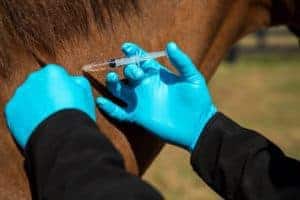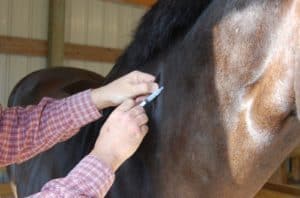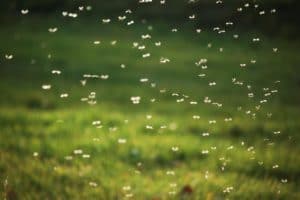
Equine Vaccination Cheat Sheet
Learn about the American Association of Equine Practitioners’ recommended core and risk-based horse vaccines in this handy special report. Sponsored by Boehringer Ingelheim.

Learn about the American Association of Equine Practitioners’ recommended core and risk-based horse vaccines in this handy special report. Sponsored by Boehringer Ingelheim.

Regular, strategic vaccination is a safe, effective method to greatly minimize the chances of deadly diseases impacting your herd.

Learn about the diseases veterinarians recommend protecting your horse against and how vaccination could save your horse’s life. Sponsored by Zoetis.

Horses might need additional risk-based vaccines in the fall months, depending on location and activities.

What vaccines should horses have on board prior to show season?

Veterinary authorities recommend these vaccines for all horses, every year.

Confused by the various vaccine types, schedules, and administration routes for horses? Here’s what you need to know.

Regular, strategic vaccination is a safe, effective method to greatly minimize the chances of deadly diseases impacting your herd. Learn more in this article from the April 2022 issue of The Horse.

Learn about Eastern equine encephalomyelitis (EEE), Western equine encephalomyelitis (WEE), and West Nile virus (WNV) and how you can best protect your horse.

The affected horse is reported as recovering.

Mosquitoes are more than just an annoyance: They’re a disease threat. Safeguard your animals (and you).

The guidelines make new recommendations for core and risk-based vaccines for horses. The committee further emphasizes that routine vaccinations are considered essential during the COVID-19 pandemic.

Learn which mosquitoes can transmit disease and how to manage populations on your farm.

They might be small, but these flying fiends can spread some deadly diseases.

These pests can transmit a variety of dangerous pathogens, depending on certain factors in your region.

Dr. Elizabeth Davis explains how experts selected the vaccines every horse should receive.
Stay on top of the most recent Horse Health news with
© 2022 Copyright Statement dolor sit amet, consetetur sadipscing User Terms, sed diam nonumy eirmod tempor invidunt ut labore et dolore magna aliquyam erat, sed diam voluptua. At vero eos et accusam et justo duo dolores et ea rebum. Stet clita kasd gubergren, no sea takimata sanctus est Lorem ipsum dolor sit amet.
"*" indicates required fields